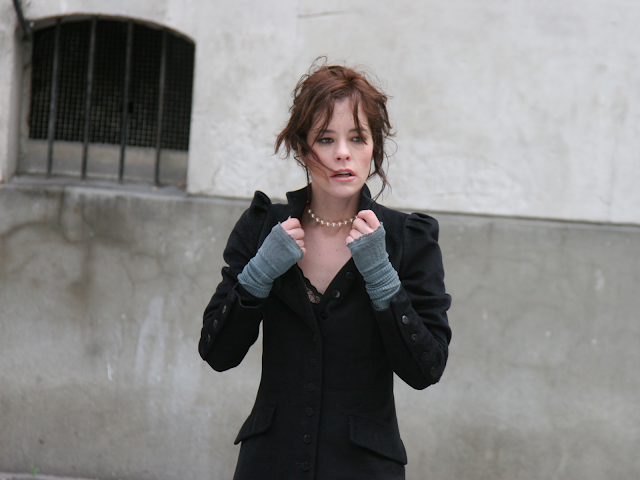 |
| Gena Rowlands and Parker Posey in Broken English |
Cast: Parker Posey, Melvil Poupaud, Drea de Matteo, Justin Theroux, Gena Rowlands, Peter Bogdanovich, Tim Guinee, Roy Thinnes, Dana Ivey, Bernadette Lafont, Thierry Hancisse. Screenplay: Zoe R. Cassavetes. Cinematography: John Pirozzi. Production design: Happy Massee. Film editing: Andrew Weisblum. Music: Scratch Massive.
The ending of Broken English is a direct copy, down to the dialogue, of the ending of Richard Linklater's Before Sunset (2004), a movie about a fractured relationship that finds a satisfactory resolution. This similarity can only be an homage, but it shows up the comparative lack of originality in Zoe R. Cassavetes' film. In fact, the copy is so blatant, and the plotline of Broken English is so familiar that I hope Cassavetes' intention was to parody romantic comedies, especially those about young women who have trouble finding satisfactory men. Unfortunately, the parody doesn't go far enough to relieve the sense I have of a movie gone flat. Parker Posey plays Nora Wilder, a young woman with a good job who is anxious about her future without a steady relationship with a man. She has a failed fling with an actor (Justin Theroux) that leaves her more in the dumps, but then she meets a lanky, easy-going Frenchman (Melvil Poupaud) who manages to overcome her anxieties and defense mechanisms. But then he returns to France, leaving his cell number with her. It's a fine cast: Posey displays her exceptional gift for edgy humor and Drea de Matteo fits nicely into the familiar role of the best friend and confidante. The invaluable Gena Rowlands rises above her role as the stereotypical mother who wants her to get married. And Poupaud, smoking like a chimney, is a steady foil for Nora's jitteryness. But by the time the movie gets Nora to Paris and the city casts its patented romantic spell over things, including a stereotypical older Frenchman (Thierry Hancisse) who imparts his worldly wisdom, we get the feeling we've seen it all before.




